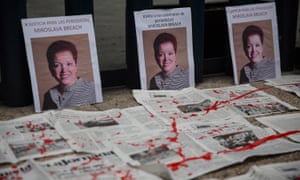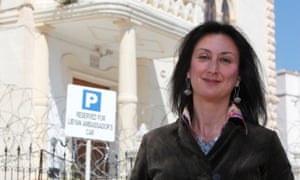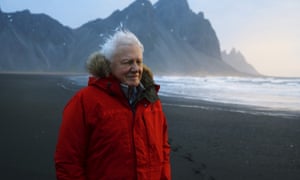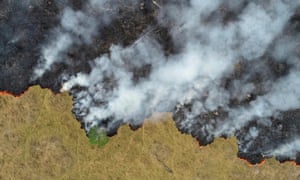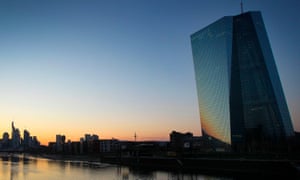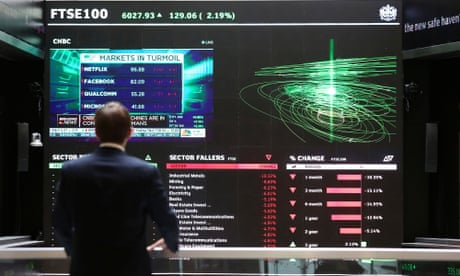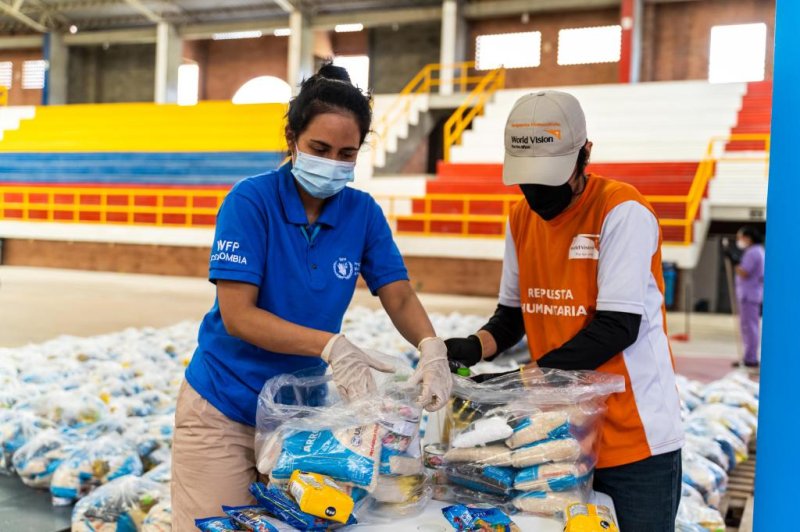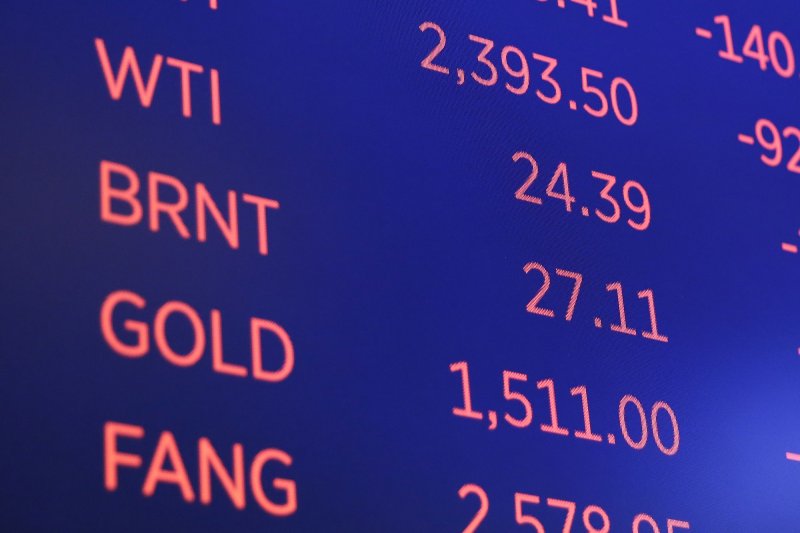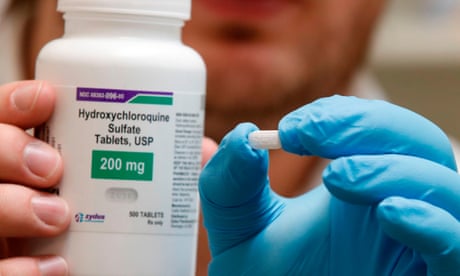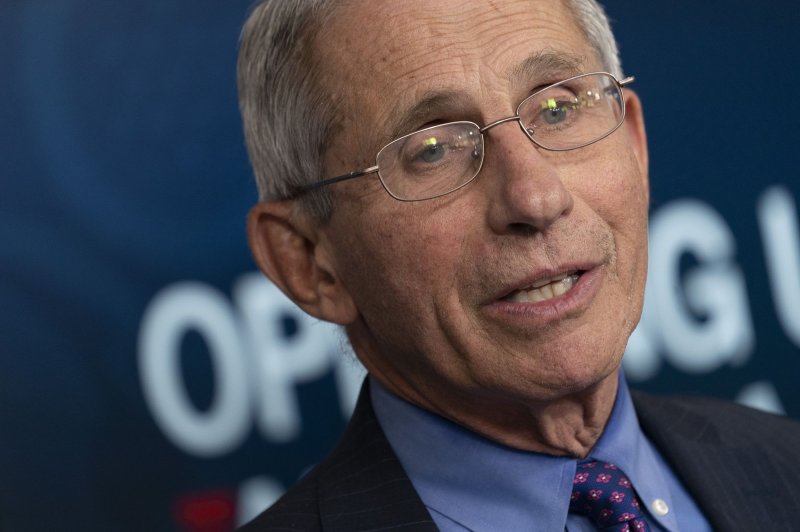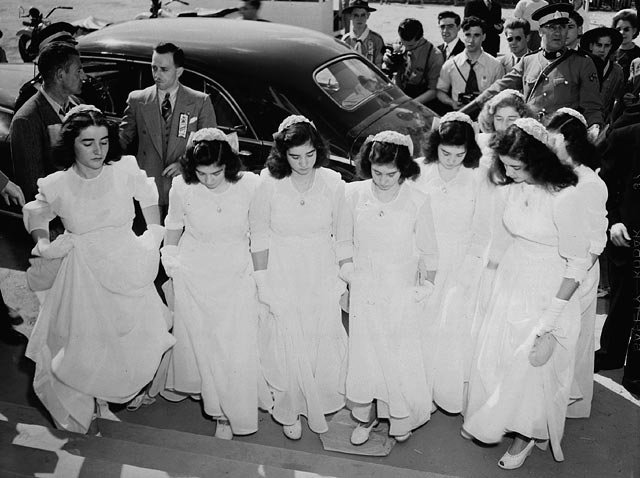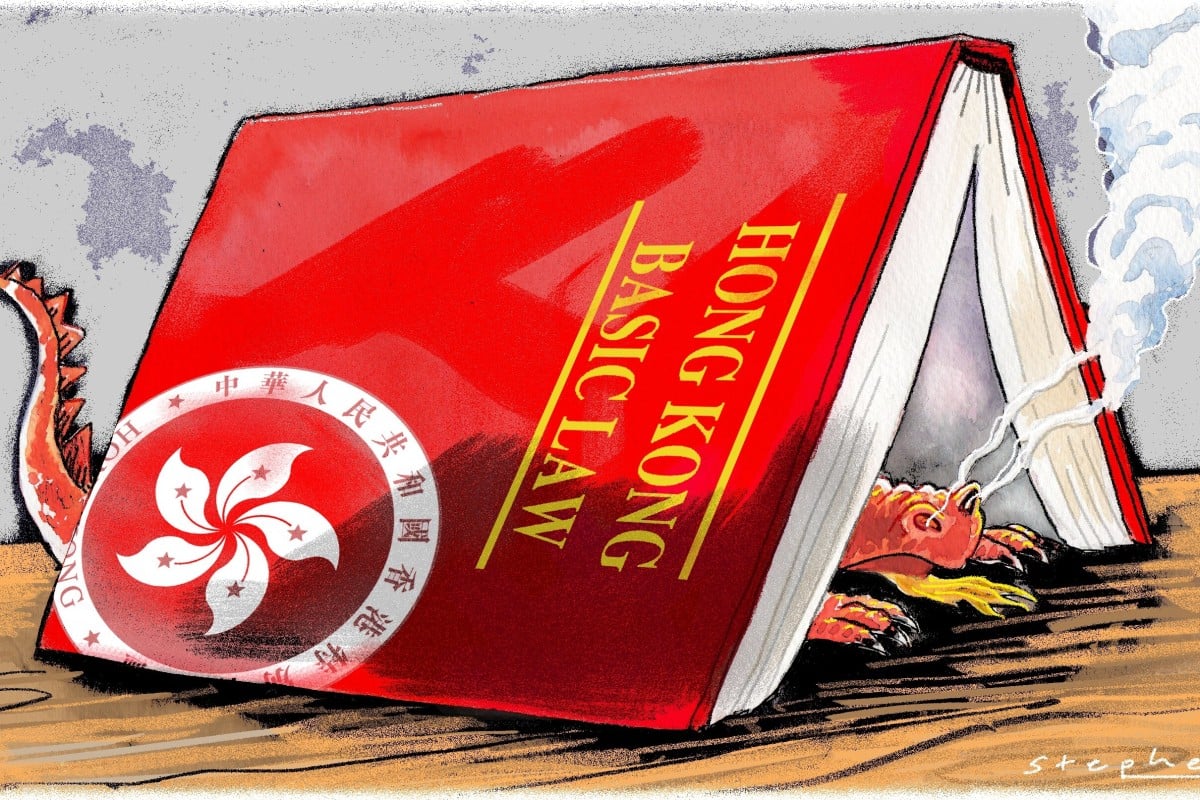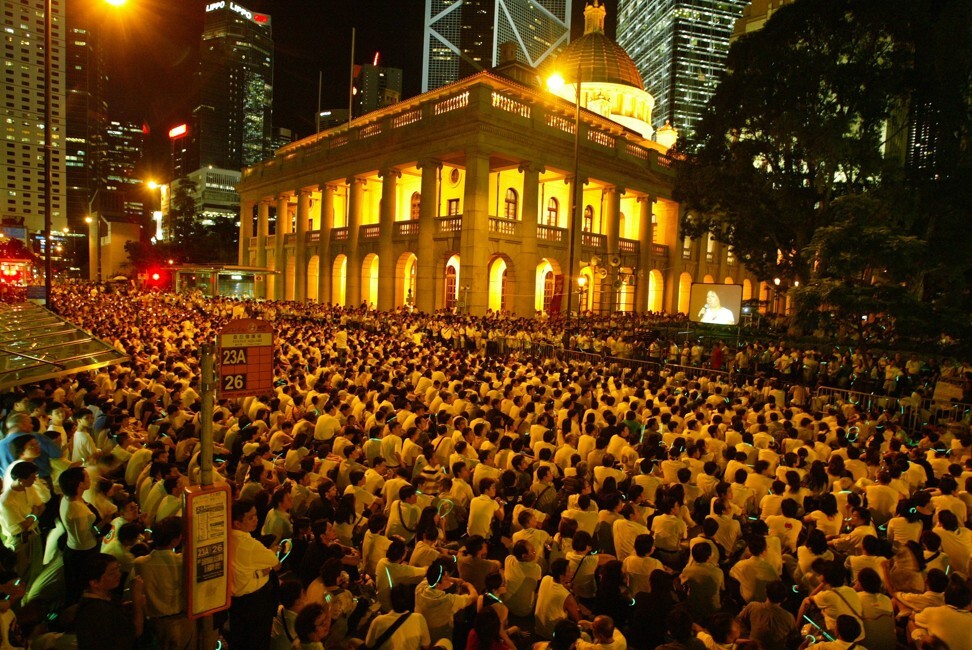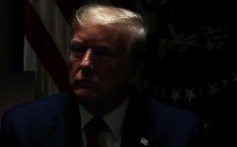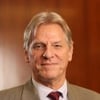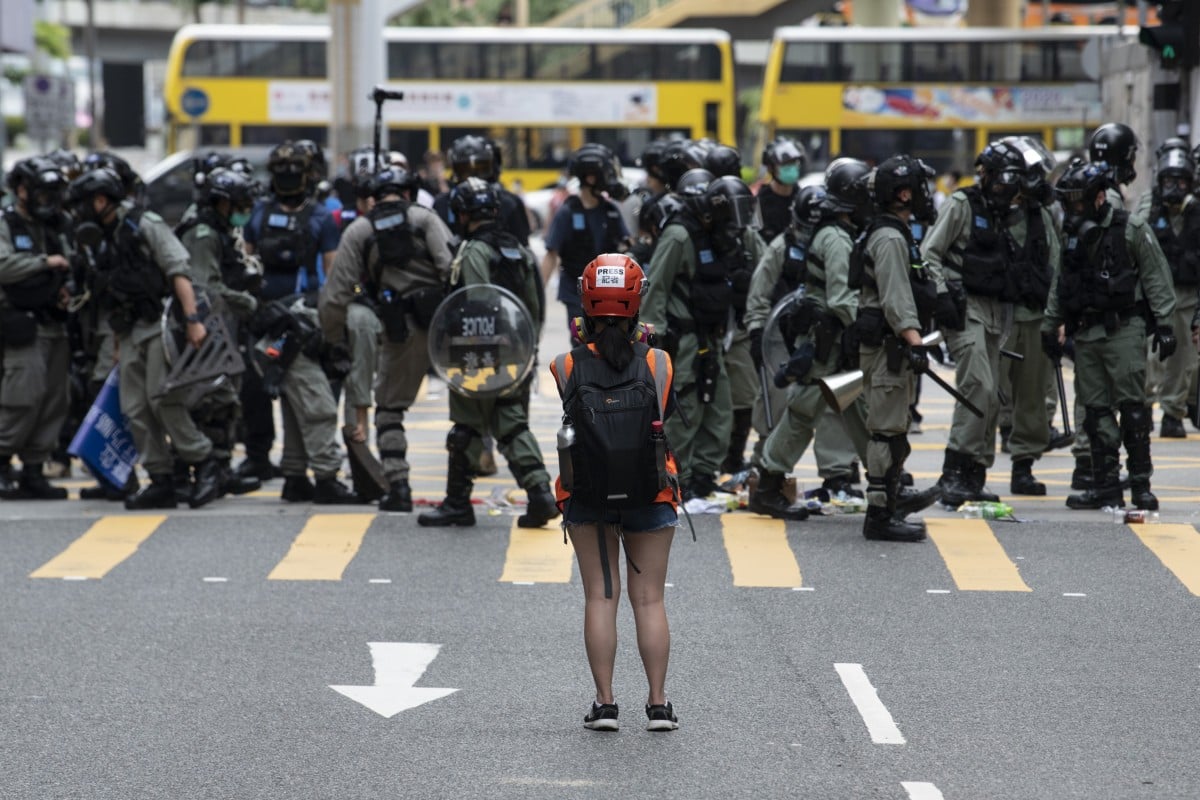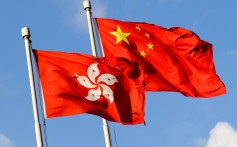How the free press worldwide is under threat
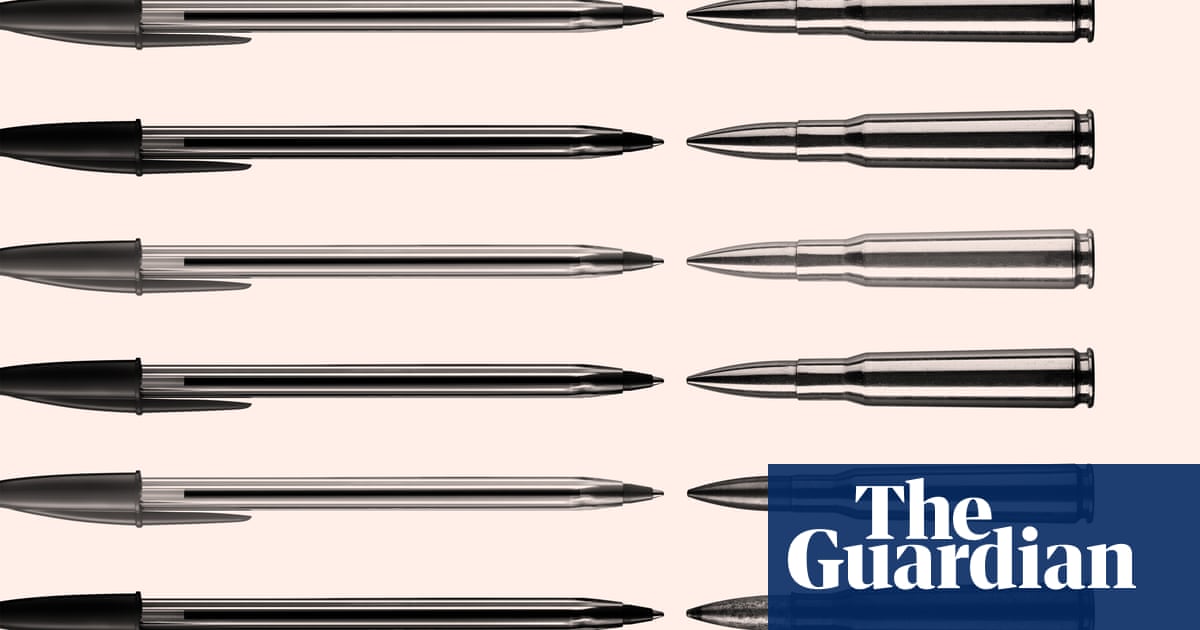
Illustration: Guardian Design
From Mexico to Malta, attacks on journalists and publishers have proved deadly to individuals and chilling to broader freedoms. And now Covid-19 is being used as an excuse to silence more voices.
By Gill Phillips
Thu 28 May 2020
Just after 7am on the morning of 23 March 2017, journalist Miroslava Breach Velducea, a 54-year-old mother of three, was driving her 14-year-old son to school in the city of Chihuahua, Mexico, when a man walked up to her car and shot her eight times. According to reports, her son was not injured, but Breach died on the way to hospital.
The Mexican newspaper la Jornada reported that a cardboard note was found at the scene of the murder, which read: “For being a snitch. You’re next, Governor – El 80.” According to Mexican police, “El 80” was Carlos Arturo Quintana, son of the leader of an organised crime syndicate known as La Línea, which in its heyday controlled one of the lucrative smuggling routes for the supply and transfer of drugs from Colombia to the US. Three days before Breach was murdered, Quintana’s father had been killed in a confrontation between rival gangs.
Breach worked for la Jornada and for the regional paper Norte de Ciudad Juarez, covering politics and crime; she had also set up her own news agency, Mir. She had reported extensively on the links between organised crime and politicians in Chihuahua state. On 4 March 2016, Breach wrote in la Jornada about the alleged criminal connections of mayoral candidates in several small towns in western Chihuahua. Breach had received threats to her life on at least three occasions as a result of her reporting. In October 2016, she had told a meeting of the Federal Mechanism for Journalists and Human Rights Defenders that she had been threatened. Nevertheless, on the day she was killed, she had no protection.
Thu 28 May 2020
Just after 7am on the morning of 23 March 2017, journalist Miroslava Breach Velducea, a 54-year-old mother of three, was driving her 14-year-old son to school in the city of Chihuahua, Mexico, when a man walked up to her car and shot her eight times. According to reports, her son was not injured, but Breach died on the way to hospital.
The Mexican newspaper la Jornada reported that a cardboard note was found at the scene of the murder, which read: “For being a snitch. You’re next, Governor – El 80.” According to Mexican police, “El 80” was Carlos Arturo Quintana, son of the leader of an organised crime syndicate known as La Línea, which in its heyday controlled one of the lucrative smuggling routes for the supply and transfer of drugs from Colombia to the US. Three days before Breach was murdered, Quintana’s father had been killed in a confrontation between rival gangs.
Breach worked for la Jornada and for the regional paper Norte de Ciudad Juarez, covering politics and crime; she had also set up her own news agency, Mir. She had reported extensively on the links between organised crime and politicians in Chihuahua state. On 4 March 2016, Breach wrote in la Jornada about the alleged criminal connections of mayoral candidates in several small towns in western Chihuahua. Breach had received threats to her life on at least three occasions as a result of her reporting. In October 2016, she had told a meeting of the Federal Mechanism for Journalists and Human Rights Defenders that she had been threatened. Nevertheless, on the day she was killed, she had no protection.
A protest in Mexico City after the murder of Miroslava Breach in 2017. Photograph: Anadolu Agency/Getty Images
Breach’s story is not an isolated one. She was one of six journalists killed in Mexico in 2017; more than 150 journalists have been killed there since 2000, 22 of them in the state of Chihuahua. In 2019, according to data compiled by the Committee to Protect Journalists (CPJ), Mexico had the seventh-highest number of unsolved murders of journalists in the world, behind Somalia, Syria, Iraq, South Sudan, the Philippines and Afghanistan. On 18 May this year, gunmen killed the owner of a newspaper, Jorge Miguel Armenta Ávalos, and one of the policemen assigned to protect him, following earlier threats. Armenta, who is at least the third journalist to be murdered in Mexico in 2020, was attacked in broad daylight while leaving a restaurant.
According to the World Press Freedom Index for 2020, compiled by Reporters Without Borders (RSF) and released in March, journalists in Mexico face a dire situation: “Collusion between officials and organized crime poses a grave threat to journalists’ safety and cripples the judicial system at all levels. Journalists who cover sensitive political stories or organized crime are warned, threatened and often gunned down in cold blood.”
Attacks on journalists around the world take many forms, some of which are sanctioned in law. Legal or quasi-legal mechanisms include the use of civil or criminal legal actions, covert surveillance, overt censorship and financial threats (such as withdrawing state advertising), as well as more direct intimidation and threats.
In recent years, another way of silencing journalists has proliferated: the use of what are known as strategic lawsuits against public participation, or Slapps, where defamation or criminal lawsuits are brought with the intention of shutting down forms of expression such as peaceful protest or writing blogs. Originally regarded as an American legal mechanism, such lawsuits are now fairly widespread in Europe. Before she was killed in 2017, the Maltese journalist Daphne Caruana Galizia was facing around 40 libel lawsuits filed by companies, government officials and individuals, which were described by her son Matthew as a “never-ending type of torture”.
Věra Jourová, the vice-president of the European Commission, the executive branch of the EU, has been working on introducing protections against Slapp lawsuits, the defence of which can cost individuals a fortune and tie up their time and resources. Justin Borg-Barthet, a legal academic at Aberdeen University, has called for EU law to be changed to prevent “forum shopping” to countries with claimant-friendly laws, so that defamation suits would have to be filed in the courts of the country where the media organisation or journalist was based. Slapp lawsuits are commonly used against journalists investigating government corruption or exposing corporate abuses, but are also used against civil society organisations, activists such as environmental campaigners, trade unionists and academics, to shut down or silence acts of criticism and protest.
In France, media organisations and NGOs have been hit with what they view as Slapp suits for publishing accusations of land-grabbing from villagers and farmers in Cameroon by companies associated with the Bolloré Group. In the UK, fracking companies including Ineos, UK Oil & Gas, Cuadrilla, IGas and Angus Energy have since 2017 sought and been granted wide-ranging court injunctions, often directed against persons unknown, to prevent protests and campaigning activities at drilling sites. These injunctions had a chilling effect on the right to protest and free speech, until the court of appeal ruled in April 2019 that parts of an Ineos injunction prohibiting protests on the public highway and against the Ineos supply chain, and which had been used as a template for similar orders granted to other oil and gas companies, were unlawful.
Breach’s story is not an isolated one. She was one of six journalists killed in Mexico in 2017; more than 150 journalists have been killed there since 2000, 22 of them in the state of Chihuahua. In 2019, according to data compiled by the Committee to Protect Journalists (CPJ), Mexico had the seventh-highest number of unsolved murders of journalists in the world, behind Somalia, Syria, Iraq, South Sudan, the Philippines and Afghanistan. On 18 May this year, gunmen killed the owner of a newspaper, Jorge Miguel Armenta Ávalos, and one of the policemen assigned to protect him, following earlier threats. Armenta, who is at least the third journalist to be murdered in Mexico in 2020, was attacked in broad daylight while leaving a restaurant.
According to the World Press Freedom Index for 2020, compiled by Reporters Without Borders (RSF) and released in March, journalists in Mexico face a dire situation: “Collusion between officials and organized crime poses a grave threat to journalists’ safety and cripples the judicial system at all levels. Journalists who cover sensitive political stories or organized crime are warned, threatened and often gunned down in cold blood.”
Attacks on journalists around the world take many forms, some of which are sanctioned in law. Legal or quasi-legal mechanisms include the use of civil or criminal legal actions, covert surveillance, overt censorship and financial threats (such as withdrawing state advertising), as well as more direct intimidation and threats.
In recent years, another way of silencing journalists has proliferated: the use of what are known as strategic lawsuits against public participation, or Slapps, where defamation or criminal lawsuits are brought with the intention of shutting down forms of expression such as peaceful protest or writing blogs. Originally regarded as an American legal mechanism, such lawsuits are now fairly widespread in Europe. Before she was killed in 2017, the Maltese journalist Daphne Caruana Galizia was facing around 40 libel lawsuits filed by companies, government officials and individuals, which were described by her son Matthew as a “never-ending type of torture”.
Věra Jourová, the vice-president of the European Commission, the executive branch of the EU, has been working on introducing protections against Slapp lawsuits, the defence of which can cost individuals a fortune and tie up their time and resources. Justin Borg-Barthet, a legal academic at Aberdeen University, has called for EU law to be changed to prevent “forum shopping” to countries with claimant-friendly laws, so that defamation suits would have to be filed in the courts of the country where the media organisation or journalist was based. Slapp lawsuits are commonly used against journalists investigating government corruption or exposing corporate abuses, but are also used against civil society organisations, activists such as environmental campaigners, trade unionists and academics, to shut down or silence acts of criticism and protest.
In France, media organisations and NGOs have been hit with what they view as Slapp suits for publishing accusations of land-grabbing from villagers and farmers in Cameroon by companies associated with the Bolloré Group. In the UK, fracking companies including Ineos, UK Oil & Gas, Cuadrilla, IGas and Angus Energy have since 2017 sought and been granted wide-ranging court injunctions, often directed against persons unknown, to prevent protests and campaigning activities at drilling sites. These injunctions had a chilling effect on the right to protest and free speech, until the court of appeal ruled in April 2019 that parts of an Ineos injunction prohibiting protests on the public highway and against the Ineos supply chain, and which had been used as a template for similar orders granted to other oil and gas companies, were unlawful.
Maltese investigative journalist Daphne Caruana Galizia, who was murdered by a car bomb in 2017. Photograph: Darrin Zammit Lupi/Reuters
Alongside Slapp suits, there are more traditional ways to keep journalists quiet. More than 150 countries retain some sort of criminal defamation laws, many of which include the possibility of imprisonment. Blasphemy and insult laws remain commonplace in many countries, and are often used by politicians and government officials against any critical media. A number of countries including Turkey and Egypt have expansive definitions of “terrorism” that allow them to arrest and detain anyone who voices political dissent or opposition, including journalists.
In countries such as Hungary and Poland, governments and political allies exercise quasi-legal control of public information. Media owners can be pressured on what content to publish by threats to limit access to finance and advertising revenues.
Separately, the lack of legal protections for journalists against those who attack them acts as a strong deterrent. Impunity fuels a vicious cycle of violence, bolstering those who aim to silence public debate and block sensitive information.
In 2013, the UN published a plan of action on the safety of journalists, and the problem of impunity for perpetrators. The plan provides a framework for co-operation between UN bodies, national authorities, media actors and NGOs. Spearheaded through Unesco, the plan was incorporated into the Declaration of the Council of Europe in April 2014, and in guidelines published by the EU soon after. In April 2016, the Committee of Ministers of the Council of Europe adopted a recommendation on the protection of journalism and safety of journalists and other media actors.
By the end of 2018, the Council of Europe’s Platform for the Protection of Journalism and Safety of Journalists, set up to record information on serious concerns about media freedom and the safety of journalists in Council of Europe (CoE) member states, had registered more than 500 alerts, with year-on-year rises of incidents in every year except 2017. Nearly half of all alerts are marked as category 1, covering the most severe and damaging violations of media freedom, such as murder, direct threats to life and physical assaults. The majority of threats came from the state, with physical attacks and detentions making up nearly half the alerts. Since 2015, only 11% of all alerts have been marked as resolved, a figure that goes down to 1.82% for alerts entered in 2018. Interviews with journalists echo these statistics. In 2017, a study that interviewed 940 journalists from all CoE member states found that a staggering 40% of them had suffered slander.
According to a May 2020 report by Peter Noorlander on the implementation of the 2016 CoE recommendation, attacks against journalists remain insufficiently investigated, and a very high percentage of incidents go unpunished. “Journalists have little confidence that attacks or threats against them will be investigated, and often do not report them,” the report said. “This has a grave effect on them, and many no longer report attacks but instead self-censor and shy away from potentially controversial issues … [CoE] Member States have committed to creating an enabling environment for freedom of expression, yet, what journalists experience on the ground is increased violence, threats, denigration, arbitrary arrests and detention.”
Some of the most high-profile cases of attacks against the media in the last few years have involved journalists in countries where neither democracy nor the rule of law is respected. Many of the more recent attacks have been perpetrated or encouraged by heads of state.
They include cases such as the politically sponsored harassment of Philippines journalist Maria Ressa, the editor of Rappler, a social news network. Under Ressa, the site has revealed the activities of the online “troll army” that supports the presidency of Rodrigo Duterte and spreads disinformation about his opponents. Rappler has also reported critically on extrajudicial killings, human-rights violations and the rising death rates from Duterte’s war on drugs. The law suits that would follow were presaged during Duterte’s state of the union speech in July 2017, when he declared that Rappler was “fully owned” by the Americans, and therefore in violation of the constitution.
In January 2018, the Philippine securities and exchange commission revoked Rappler’s licence. The government then investigated Rappler for tax evasion, and a warrant for Ressa’s arrest was issued in November 2018. In February 2019, Ressa and Rappler were hit with another lawsuit alleging libel relating to a story published in 2012, using a law enacted four months after the story was published.
Other infamous cases of state-sponsored crimes against journalists include the brutal murder, on 2 October 2018, of Saudi dissident and Washington Post journalist Jamal Khashoggi at the Saudi consulate in Istanbul, Turkey. The CIA have concluded that the Saudi crown prince, Mohammed bin Salman, ordered the journalist’s assassination. On 19 July 2019, the office of the UNHCR released a report describing Khashoggi’s death as “premeditated extra judicial execution”.
In many western countries, there is a risk that intimidation and violence against the media is becoming normalised. On Czech election day in October 2017, Czech president Miloš Zeman held up a mock assault rifle with an inscription that was translated as “At journalists”. Donald Trump has regularly shouted at and abused journalists, and a BBC camera operator was violently shoved and abused at a Donald Trump rally in 2019; in May 2017, a Guardian reporter was assaulted by a Republican candidate, now an elected congressman. Most recently there have been threats against reporter Glenn Greenwald from the far-right government of President Jair Bolsonaro in Brazil. This sort of hostility towards journalists by political leaders has global as well as domestic repercussions.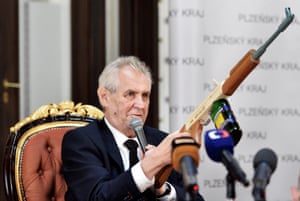
Alongside Slapp suits, there are more traditional ways to keep journalists quiet. More than 150 countries retain some sort of criminal defamation laws, many of which include the possibility of imprisonment. Blasphemy and insult laws remain commonplace in many countries, and are often used by politicians and government officials against any critical media. A number of countries including Turkey and Egypt have expansive definitions of “terrorism” that allow them to arrest and detain anyone who voices political dissent or opposition, including journalists.
In countries such as Hungary and Poland, governments and political allies exercise quasi-legal control of public information. Media owners can be pressured on what content to publish by threats to limit access to finance and advertising revenues.
Separately, the lack of legal protections for journalists against those who attack them acts as a strong deterrent. Impunity fuels a vicious cycle of violence, bolstering those who aim to silence public debate and block sensitive information.
In 2013, the UN published a plan of action on the safety of journalists, and the problem of impunity for perpetrators. The plan provides a framework for co-operation between UN bodies, national authorities, media actors and NGOs. Spearheaded through Unesco, the plan was incorporated into the Declaration of the Council of Europe in April 2014, and in guidelines published by the EU soon after. In April 2016, the Committee of Ministers of the Council of Europe adopted a recommendation on the protection of journalism and safety of journalists and other media actors.
By the end of 2018, the Council of Europe’s Platform for the Protection of Journalism and Safety of Journalists, set up to record information on serious concerns about media freedom and the safety of journalists in Council of Europe (CoE) member states, had registered more than 500 alerts, with year-on-year rises of incidents in every year except 2017. Nearly half of all alerts are marked as category 1, covering the most severe and damaging violations of media freedom, such as murder, direct threats to life and physical assaults. The majority of threats came from the state, with physical attacks and detentions making up nearly half the alerts. Since 2015, only 11% of all alerts have been marked as resolved, a figure that goes down to 1.82% for alerts entered in 2018. Interviews with journalists echo these statistics. In 2017, a study that interviewed 940 journalists from all CoE member states found that a staggering 40% of them had suffered slander.
According to a May 2020 report by Peter Noorlander on the implementation of the 2016 CoE recommendation, attacks against journalists remain insufficiently investigated, and a very high percentage of incidents go unpunished. “Journalists have little confidence that attacks or threats against them will be investigated, and often do not report them,” the report said. “This has a grave effect on them, and many no longer report attacks but instead self-censor and shy away from potentially controversial issues … [CoE] Member States have committed to creating an enabling environment for freedom of expression, yet, what journalists experience on the ground is increased violence, threats, denigration, arbitrary arrests and detention.”
Some of the most high-profile cases of attacks against the media in the last few years have involved journalists in countries where neither democracy nor the rule of law is respected. Many of the more recent attacks have been perpetrated or encouraged by heads of state.
They include cases such as the politically sponsored harassment of Philippines journalist Maria Ressa, the editor of Rappler, a social news network. Under Ressa, the site has revealed the activities of the online “troll army” that supports the presidency of Rodrigo Duterte and spreads disinformation about his opponents. Rappler has also reported critically on extrajudicial killings, human-rights violations and the rising death rates from Duterte’s war on drugs. The law suits that would follow were presaged during Duterte’s state of the union speech in July 2017, when he declared that Rappler was “fully owned” by the Americans, and therefore in violation of the constitution.
In January 2018, the Philippine securities and exchange commission revoked Rappler’s licence. The government then investigated Rappler for tax evasion, and a warrant for Ressa’s arrest was issued in November 2018. In February 2019, Ressa and Rappler were hit with another lawsuit alleging libel relating to a story published in 2012, using a law enacted four months after the story was published.
Other infamous cases of state-sponsored crimes against journalists include the brutal murder, on 2 October 2018, of Saudi dissident and Washington Post journalist Jamal Khashoggi at the Saudi consulate in Istanbul, Turkey. The CIA have concluded that the Saudi crown prince, Mohammed bin Salman, ordered the journalist’s assassination. On 19 July 2019, the office of the UNHCR released a report describing Khashoggi’s death as “premeditated extra judicial execution”.
In many western countries, there is a risk that intimidation and violence against the media is becoming normalised. On Czech election day in October 2017, Czech president Miloš Zeman held up a mock assault rifle with an inscription that was translated as “At journalists”. Donald Trump has regularly shouted at and abused journalists, and a BBC camera operator was violently shoved and abused at a Donald Trump rally in 2019; in May 2017, a Guardian reporter was assaulted by a Republican candidate, now an elected congressman. Most recently there have been threats against reporter Glenn Greenwald from the far-right government of President Jair Bolsonaro in Brazil. This sort of hostility towards journalists by political leaders has global as well as domestic repercussions.

Czech President Milos Zeman holds a mock assault rifle with “At journalists” inscribed on it in October 2017. Photograph: CTK/Alamy Stock Photo
The Wikileaks founder Julian Assange is currently held in HMP Belmarsh, while the UK decides if he can be extradited to the US, where he has been charged with violating the Espionage Act, and faces the prospect of spending the rest of his life in prison if he is found guilty. As Alan Rusbridger, the former editor of the Guardian, has written, the charges against Assange are “attempting to criminalise things journalists regularly do when they receive and publish true information given to them by sources or whistleblowers”.
According to the RSF, “the next 10 years will be pivotal for press freedom because of converging crises affecting the future of journalism: a geopolitical crisis (due to the aggressiveness of authoritarian regimes); a technological crisis (due to a lack of democratic guarantees); a democratic crisis (due to polarisation and repressive policies); a crisis of trust (due to suspicion and even hatred of the media); and an economic crisis (impoverishing quality journalism).”
It is easy to dismiss concerns about press freedom as relevant only to countries led by repressive, unelected regimes. But that would be a mistake. In 2007, Thames Valley police searched the home and office of Sally Murrer, a local journalist. “I was just pottering around doing typical local stories and in May 2007, eight police officers swooped at my home while eight swooped simultaneously at the office,” she told reporters from the Press Gazette. “They seized all my computer equipment, searched my house, phones, laptops. They took me into custody where I stayed for a couple of days, strip-searched me. I honestly had no idea [why]. They said the charge was aiding and abetting misconduct in a public office and it carried life imprisonment.
“It was only later when they interviewed me, which they did copious times, and played me tapes and showed me transcripts of texts, that I realised I had been under surveillance for the previous eight weeks. It was just a ghastly feeling.”
Thames Valley police had secretly recorded a conversation that took place between her and a police officer. Murrer was accused of receiving sensitive stories from the police officer and selling them to the News of the World. “The stories were about a local GBH committed by a footballer, and the murder of a local man where there was a link to cannabis and his wife was the secretary of the then-MP.” After 19 months, during which she had been on police bail, Murrer’s trial collapsed after the judge ruled police had breached her rights.
More recently, in August 2018, the police in Northern Ireland arrested two journalists, Trevor Birney and Barry McCaffrey, over the alleged theft of documents from the Northern Ireland police ombudsman into the 1994 Loughinisland massacre, when members of a loyalist paramilitary group, the Ulster Volunteer Force, burst into a pub with assault rifles and fired on the customers. Six were killed and five wounded. Birney and McCaffrey’s homes and offices were raided. In May 2019, three appeal judges quashed the search warrants.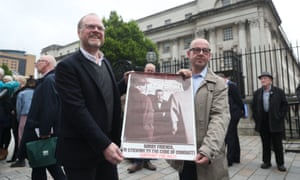
According to the RSF, “the next 10 years will be pivotal for press freedom because of converging crises affecting the future of journalism: a geopolitical crisis (due to the aggressiveness of authoritarian regimes); a technological crisis (due to a lack of democratic guarantees); a democratic crisis (due to polarisation and repressive policies); a crisis of trust (due to suspicion and even hatred of the media); and an economic crisis (impoverishing quality journalism).”
It is easy to dismiss concerns about press freedom as relevant only to countries led by repressive, unelected regimes. But that would be a mistake. In 2007, Thames Valley police searched the home and office of Sally Murrer, a local journalist. “I was just pottering around doing typical local stories and in May 2007, eight police officers swooped at my home while eight swooped simultaneously at the office,” she told reporters from the Press Gazette. “They seized all my computer equipment, searched my house, phones, laptops. They took me into custody where I stayed for a couple of days, strip-searched me. I honestly had no idea [why]. They said the charge was aiding and abetting misconduct in a public office and it carried life imprisonment.
“It was only later when they interviewed me, which they did copious times, and played me tapes and showed me transcripts of texts, that I realised I had been under surveillance for the previous eight weeks. It was just a ghastly feeling.”
Thames Valley police had secretly recorded a conversation that took place between her and a police officer. Murrer was accused of receiving sensitive stories from the police officer and selling them to the News of the World. “The stories were about a local GBH committed by a footballer, and the murder of a local man where there was a link to cannabis and his wife was the secretary of the then-MP.” After 19 months, during which she had been on police bail, Murrer’s trial collapsed after the judge ruled police had breached her rights.
More recently, in August 2018, the police in Northern Ireland arrested two journalists, Trevor Birney and Barry McCaffrey, over the alleged theft of documents from the Northern Ireland police ombudsman into the 1994 Loughinisland massacre, when members of a loyalist paramilitary group, the Ulster Volunteer Force, burst into a pub with assault rifles and fired on the customers. Six were killed and five wounded. Birney and McCaffrey’s homes and offices were raided. In May 2019, three appeal judges quashed the search warrants.

Journalists Trevor Birney (left) and Barry McCaffrey in Belfast last year after judges ruled police search warrants against them illegal. Photograph: Brian Lawless/PA
In the US in 2019, San Francisco police officers investigating the leak of a police report following the death of a public defender, Jeff Adachi, obtained a warrant “to conduct remote monitoring on a journalist’s telephone number device, day or night, including those signals produced in public, or location not open to public or visual surveillance”. In May 2019, the police raided the journalist Bryan Carmody’s home and office, and seized computers, phones and other electronic devices. A court has now ruled that the raid was unlawful, and the San Francisco police department has reportedly paid a substantial amount of damages to the journalist.
In Australia, in June 2019, police launched raids on the Australian Broadcasting Corporation’s Sydney HQ, with search warrants naming two reporters and a news director; and on the home of a News Corporation journalist. The ABC raid related to articles published in 2017 about alleged misconduct by Australian special forces in Afghanistan, “based off hundreds of pages of secret defence documents leaked to the ABC”. The raid on the home of the News Corporation journalist was in response to a story she had written about how the Australian Signals Directorate was seeking new powers to spy on Australian citizens. In February, a court ruled the search was legitimate as the police were investigating valid national security offences. ABC’s managing director, David Anderson, described the decision as “a blow for public interest journalism” and argued that it highlighted a “serious problem” with Australia’s national security laws.
Since the outbreak of coronavirus, protections for journalists have become more urgent than ever. According to RSF’s secretary-general, Christophe Deloire, “The coronavirus pandemic illustrates the negative factors threatening the right to reliable information, and is itself an exacerbating factor.”
“Both China and Iran censored their major coronavirus outbreaks extensively. In Iraq, the authorities stripped Reuters of its licence for three months after it published a story questioning official coronavirus figures. Even in Europe, prime minister Viktor Orbán of Hungary had a ‘coronavirus’ law passed with penalties of up to five years in prison for false information, a completely disproportionate and coercive measure.” RSF also say reporters have been arrested in Algeria, Jordan and Zimbabwe while reporting on lockdown-related issues, and that Cambodia’s prime minister has used the coronavirus crisis to bolster his authority.
In March, the Guardian journalist Ruth Michaelson was forced to leave Egypt after she reported on a scientific study that said Egypt was likely to have many more coronavirus cases than have been officially confirmed, and the New York Times Cairo bureau chief was reprimanded over supposed “bad faith” reporting on the country’s coronavirus cases. The Columbia Journalism Review, in an article entitled “Covid-19 is spawning a global press-freedom crackdown”, reported at the end of March that police in Venezuela had violently detained a journalist in reprisal for reporting on the pandemic, and that in Turkey, seven journalists were detained in reprisal for their reporting. In South Africa, the government has enacted a new law that makes it a crime to publish “disinformation” about Covid-19.
In light of the pandemic, the UK and other members of the executive group of the Media Freddom Coalition (Canada, Germany, Latvia, the Netherlands and the US), agreed a statement on 6 April 2020, reaffirming the fundamental importance of media freedom, and calling on all states to continue to protect access to free media and the free exchange of information. The statement said that the executive group were concerned by the efforts by some states to use the crisis to put in place undue restrictions on a free and independent media: “Such actions deny societies critical information on the spread of the disease and undermine trust in responsible government”. It also urged “governments to continue guaranteeing the freedom and independence of media, the safety of journalists and other media professionals, and to refrain from imposing undue restrictions in the fight against proliferation of the coronavirus”.
On the day of the murder of Miroslava Breach Velducea in 2017, Mexico’s federal special prosecutor for crimes against freedom of expression stated that a federal investigation had begun. Seven days later, according to la Jornada, Chihuahua’s attorney general said that two suspects had been identified in the shooting, and that Breach was killed because her reporting affected the interests of organised crime.
Later that year, the finger of blame for the killing was pointed at “Los Salazares”, a criminal organisation linked to the Sinaloa cartel, led by the Mexican drug lord El Chapo, who has since been convicted in the US for trafficking tons of cocaine, heroin and marijuana and engaging in multiple murder conspiracies, and sentenced to spend the rest of his life in prison . A hitman linked to Los Salazares – Juan Carlos Moreno Ochoa, alias “El Larry” – was arrested by authorities on Christmas Day 2017 during an early morning raid. Surveillance cameras had captured him walking in the vicinity of the murder scene.
In March 2020, a federal court judge found Morena guilty of overseeing the journalist’s murder. Testifying under the alias “Apolo”, the son of the leader of Los Salazares gave evidence about how his father was upset that a relative lost a mayoral election in the town of Chinipas, el Heraldo newspaper reported. The judge found that Morena supervised the crime and enlisted the help of two other people, Jaciel Vega Villa, who allegedly drove the car to Breach’s home, and Ramón Andrés Zavala Corral, who was suspected of having fired the shots that fatally wounded her. Zavala had been found dead in December 2017, a few days before Moreno Ochoa’s arrest. Vega remains at large, a fugitive from justice.
In the US in 2019, San Francisco police officers investigating the leak of a police report following the death of a public defender, Jeff Adachi, obtained a warrant “to conduct remote monitoring on a journalist’s telephone number device, day or night, including those signals produced in public, or location not open to public or visual surveillance”. In May 2019, the police raided the journalist Bryan Carmody’s home and office, and seized computers, phones and other electronic devices. A court has now ruled that the raid was unlawful, and the San Francisco police department has reportedly paid a substantial amount of damages to the journalist.
In Australia, in June 2019, police launched raids on the Australian Broadcasting Corporation’s Sydney HQ, with search warrants naming two reporters and a news director; and on the home of a News Corporation journalist. The ABC raid related to articles published in 2017 about alleged misconduct by Australian special forces in Afghanistan, “based off hundreds of pages of secret defence documents leaked to the ABC”. The raid on the home of the News Corporation journalist was in response to a story she had written about how the Australian Signals Directorate was seeking new powers to spy on Australian citizens. In February, a court ruled the search was legitimate as the police were investigating valid national security offences. ABC’s managing director, David Anderson, described the decision as “a blow for public interest journalism” and argued that it highlighted a “serious problem” with Australia’s national security laws.
Since the outbreak of coronavirus, protections for journalists have become more urgent than ever. According to RSF’s secretary-general, Christophe Deloire, “The coronavirus pandemic illustrates the negative factors threatening the right to reliable information, and is itself an exacerbating factor.”
“Both China and Iran censored their major coronavirus outbreaks extensively. In Iraq, the authorities stripped Reuters of its licence for three months after it published a story questioning official coronavirus figures. Even in Europe, prime minister Viktor Orbán of Hungary had a ‘coronavirus’ law passed with penalties of up to five years in prison for false information, a completely disproportionate and coercive measure.” RSF also say reporters have been arrested in Algeria, Jordan and Zimbabwe while reporting on lockdown-related issues, and that Cambodia’s prime minister has used the coronavirus crisis to bolster his authority.
In March, the Guardian journalist Ruth Michaelson was forced to leave Egypt after she reported on a scientific study that said Egypt was likely to have many more coronavirus cases than have been officially confirmed, and the New York Times Cairo bureau chief was reprimanded over supposed “bad faith” reporting on the country’s coronavirus cases. The Columbia Journalism Review, in an article entitled “Covid-19 is spawning a global press-freedom crackdown”, reported at the end of March that police in Venezuela had violently detained a journalist in reprisal for reporting on the pandemic, and that in Turkey, seven journalists were detained in reprisal for their reporting. In South Africa, the government has enacted a new law that makes it a crime to publish “disinformation” about Covid-19.
In light of the pandemic, the UK and other members of the executive group of the Media Freddom Coalition (Canada, Germany, Latvia, the Netherlands and the US), agreed a statement on 6 April 2020, reaffirming the fundamental importance of media freedom, and calling on all states to continue to protect access to free media and the free exchange of information. The statement said that the executive group were concerned by the efforts by some states to use the crisis to put in place undue restrictions on a free and independent media: “Such actions deny societies critical information on the spread of the disease and undermine trust in responsible government”. It also urged “governments to continue guaranteeing the freedom and independence of media, the safety of journalists and other media professionals, and to refrain from imposing undue restrictions in the fight against proliferation of the coronavirus”.
On the day of the murder of Miroslava Breach Velducea in 2017, Mexico’s federal special prosecutor for crimes against freedom of expression stated that a federal investigation had begun. Seven days later, according to la Jornada, Chihuahua’s attorney general said that two suspects had been identified in the shooting, and that Breach was killed because her reporting affected the interests of organised crime.
Later that year, the finger of blame for the killing was pointed at “Los Salazares”, a criminal organisation linked to the Sinaloa cartel, led by the Mexican drug lord El Chapo, who has since been convicted in the US for trafficking tons of cocaine, heroin and marijuana and engaging in multiple murder conspiracies, and sentenced to spend the rest of his life in prison . A hitman linked to Los Salazares – Juan Carlos Moreno Ochoa, alias “El Larry” – was arrested by authorities on Christmas Day 2017 during an early morning raid. Surveillance cameras had captured him walking in the vicinity of the murder scene.
In March 2020, a federal court judge found Morena guilty of overseeing the journalist’s murder. Testifying under the alias “Apolo”, the son of the leader of Los Salazares gave evidence about how his father was upset that a relative lost a mayoral election in the town of Chinipas, el Heraldo newspaper reported. The judge found that Morena supervised the crime and enlisted the help of two other people, Jaciel Vega Villa, who allegedly drove the car to Breach’s home, and Ramón Andrés Zavala Corral, who was suspected of having fired the shots that fatally wounded her. Zavala had been found dead in December 2017, a few days before Moreno Ochoa’s arrest. Vega remains at large, a fugitive from justice.
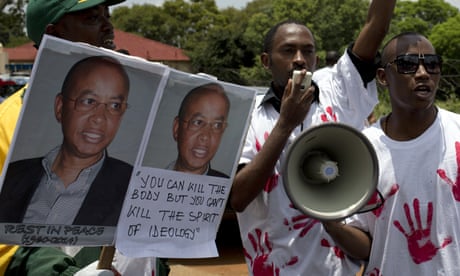
Rwanda’s Khashoggi: who killed the exiled spy chief?
The guilty verdict came too late to save Breach’s newspaper. In April 2017, the editor of Norte de Ciudad Juarez, where Breach had worked, announced that the paper was closing. In an editorial published shortly after the assassination, Oscar Cantú said he could not continue to publish in the face of the violence against journalists in Mexico and the impunity of those responsible. “There are neither the guarantees nor the security to exercise critical, balanced journalism,” he wrote. “Everything in life has a beginning and an end, and a price to pay, and if the price is life, I am not prepared for any more of my colleagues to pay it, nor am I prepared to pay it either.”
The work of journalists in all media around the world is even more important at a time when misinformation and disinformation spread so rapidly across the internet, and when powerful political and business actors can attack journalists with impunity. As Unesco said in their campaign literature for this year’s World Press Freedom Day: “Today, citizens are on lockdown, eager for news like never before. And more than ever, the news must be fact-checked, verified. Because disinformation spreads as fast as the virus itself, and journalists are on the frontline in the fight against the distortion of truth. More than ever we need facts. Facts to avoid spreading fear, fake news and panic. More than ever we need a free press.”
Gill Phillips is director of editorial legal services at the Guardian
• This article was amended on 28 May 2020 to clarify details of the respective raids on the Australian Broadcasting Corporation and on the home of a News Corporation journalist in 2019.
